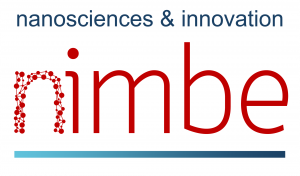Résumé :
L’utilisation massive de ressources fossiles carbonées pour des applications énergétiques est aujourd’hui pointée du doigt comme responsable du changement climatique. Le CO₂ émis lors de la combustion de ces ressources augmente l’effet de serre, induisant ainsi un réchauffement de la planète. Afin d’atténuer ce changement climatique, l’utilisation des énergies renouvelables est de plus en plus favorisée et le stockage de cette énergie sous forme d’hydrogène semble prometteur pour pallier à l’intermittence saisonnière de ces ressources. Une voie de stockage de l’hydrogène consiste à le faire réagir avec du CO₂ afin d’obtenir des carburants liquides telles que l’acide formique et le méthanol. Ces liquides peuvent alors être transportés facilement et lorsque l’énergie vient à manquer l’hydrogène peut être régénéré par déshydrogénation de ces molécules grâce à des catalyseurs.
Dans cette thèse nous avons développé des complexes organométalliques en vue d’activer CO₂ et H₂, ce qui nous a permis d’acquérir un savoir fondamental. Le ligand triphos étant très connu pour coordiner des complexes qui catalysent ces réactions d’hydrogénation et de déshydrogénation, nous nous sommes d’abord concentrés sur le développement de ligands similaires. Nous avons synthétisé de nouveaux complexes de Fe (II), Co (II) et Cu (I) avec ces ligands. Ceux-ci se sont révélés actifs en hydroboration du CO₂. Un complexe de ruthénium a été greffé sur silice par son ligand, afin de pouvoir être recyclé lors des catalyses. Dans une deuxième partie, nous avons synthétisé un nouveau ligand aux des propriétés participatives potentielles. Un complexe de cuivre(I) coordiné par ce ligand a permis d’activer H₂ grâce à une participation métal-ligand.Enfin, un complexe de cobalt(I) coordiné par ce ligand est le premier composé à base de cobalt capable de déshydrogéner l’acide formique.
Mots-Clés : Méthanol, Réduction, CO₂, Chimie de coordination, Chimie organométallique, Petites molécules.
Synthesis of new tripodal ligands and their coordination complexes for small molecules activation
Abstract:
The extensive use of fossile fuel is currently causing climate change. Anthropogenic emissions of CO₂ enhance the greenhouse effect, resulting in global warming. In order to mitigate this climate change, the share of renewable energy is increasing and hydrogen seems to be a good candidate to stock energy to compensate the seasonal variations of those energies. One way to store H₂ is the hydrogenation of CO₂ to synthesise liquid molecules as formic acid and methanol. Those liquids can be conveyed in an easier way. In case of a lack of energy, H₂ can be recovered through dehydrogenation of those molecules thinks to catalysts.
In this thesis, we studied the synthesis of organometallic complexes able to activate those small molecules, thus, growing a fundamental knowledge. As a number of triphos-metal complexes are known to catalyse hydrogenation and dehydrogenation reactions, we focused on the elaboration of ligands alike. With those ligands in hand, several non-noble metal based complexes (Fe (II), Co (II) and Cu (I)) were synthesized, which are active in CO₂ hydroboration catalysis. A complex of ruthenium(II)was grafted on silica through one of this ligand, in order to recycle it when it used as a catalyst. On the second hand, we designed a new ligand which could favor metal-ligand cooperativity. H₂ was succesfully activated with a copper(I) complex coordinated by this ligand, demonstrating that cooperation of the ligand. Finally, the first known cobalt complex active in dehydrogenation of formic acid was synthesised.
Keywords: Methanol, CO₂ reduction, Coordination chemistry, Organometallic chemistry, Small molecules.
NIMBE/LCMCE




